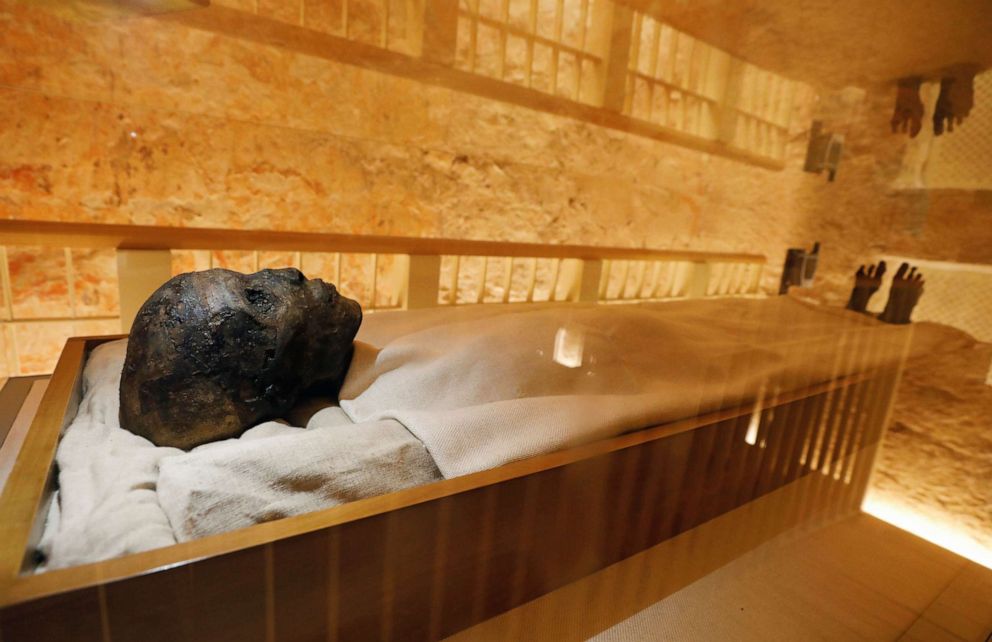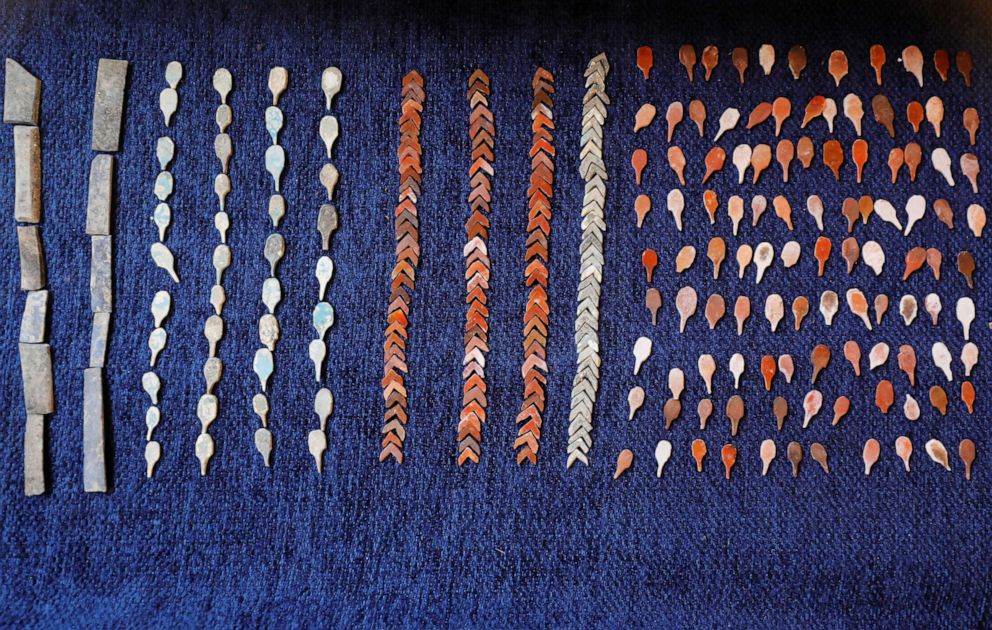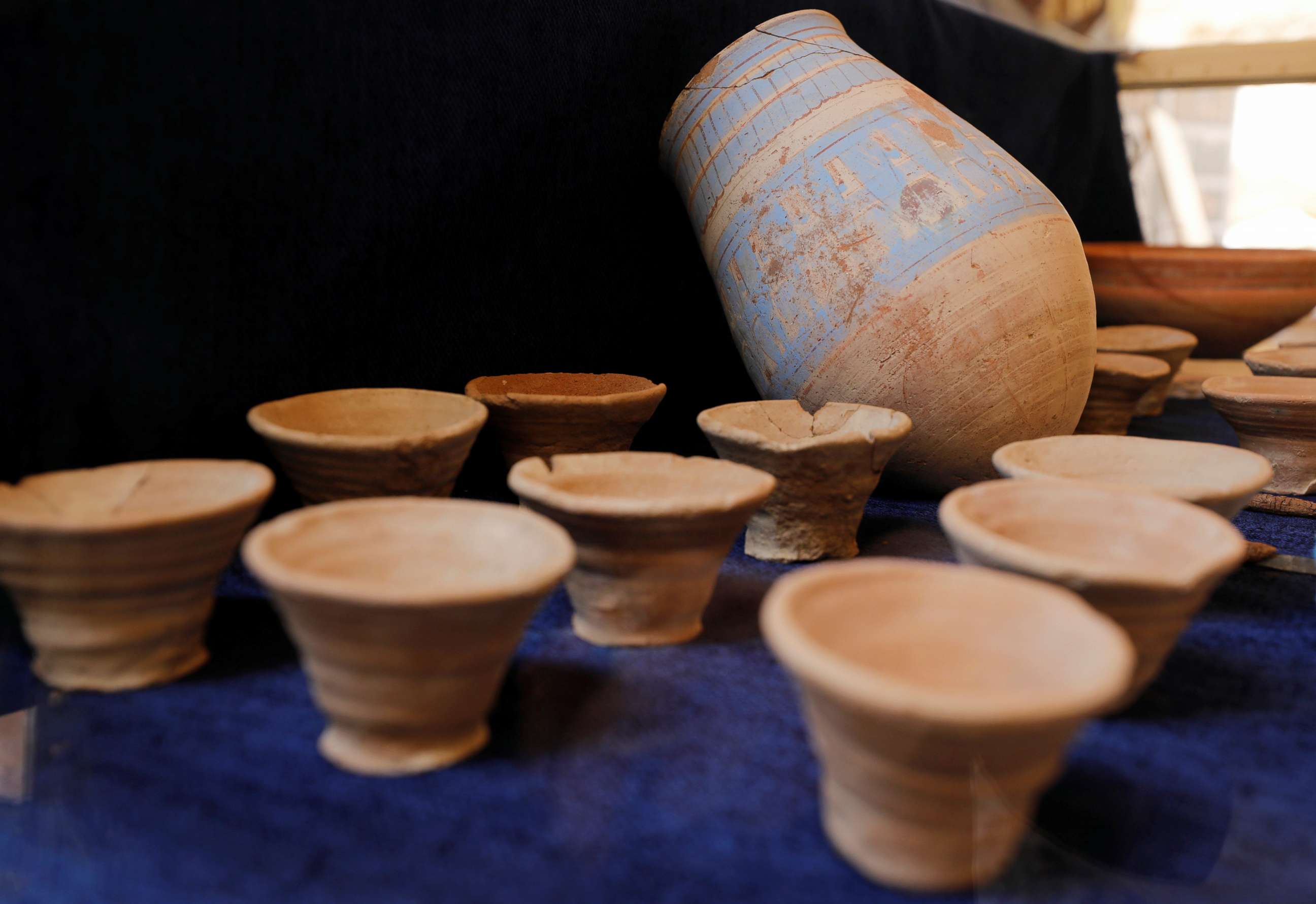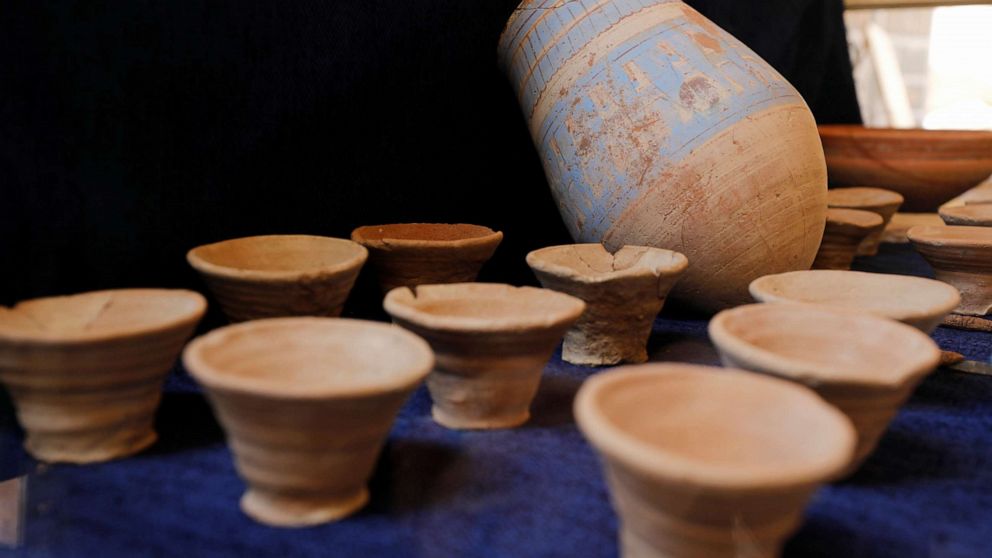Egypt unveils 3,500-year-old industrial district on west bank of the Nile
Egypt, as part of a larger effort to ramp up tourism, has unveiled a 3,500-year-old industrial area, a first-of-its-kind collection of artifacts, on the west bank of the Nile River in Luxor.
The discovery in the Western Valley, also known as the Valley of the Monkeys, dates to the New Kingdom's 18th Dynasty, approximately 1543–1292 B.C., the antiquities ministry said in a statement on Thursday.

Egyptologist Zahi Hawass, who spearheaded a two-year excavation in the area, said the site includes 30 workshops where funeral furniture for royal tombs was made.
The team also discovered an oven used to produce clay products, a water storage tank, two silver rings and objects used to decorate royal coffins, Hawass said at a press conference in Luxor, according to the statement.
Hawass' team also uncovered a royal tomb that contained tools used in tomb construction.

A mission launched by Napoleon Bonaparte in the early 19th century discovered a few items at this site, which otherwise remained untapped until a new excavation in 2011. That mission was halted, and Hawass returned to the site in 2017.
Work is currently underway in the Western Valley to find the tombs of Queen Nefertiti and the wife of boy-king Tutankhamun, Hawass added.
In April, archaeologists unveiled an expansive tomb on Luxor's west bank that also dates to the 18th dynasty, believed to have belonged to a nobleman named Shedsu Djehuty.
The west bank of the Nile in Luxor also is home to the Valley of the Kings, a major site where pharaohs and nobles of the New Kingdom were buried.





